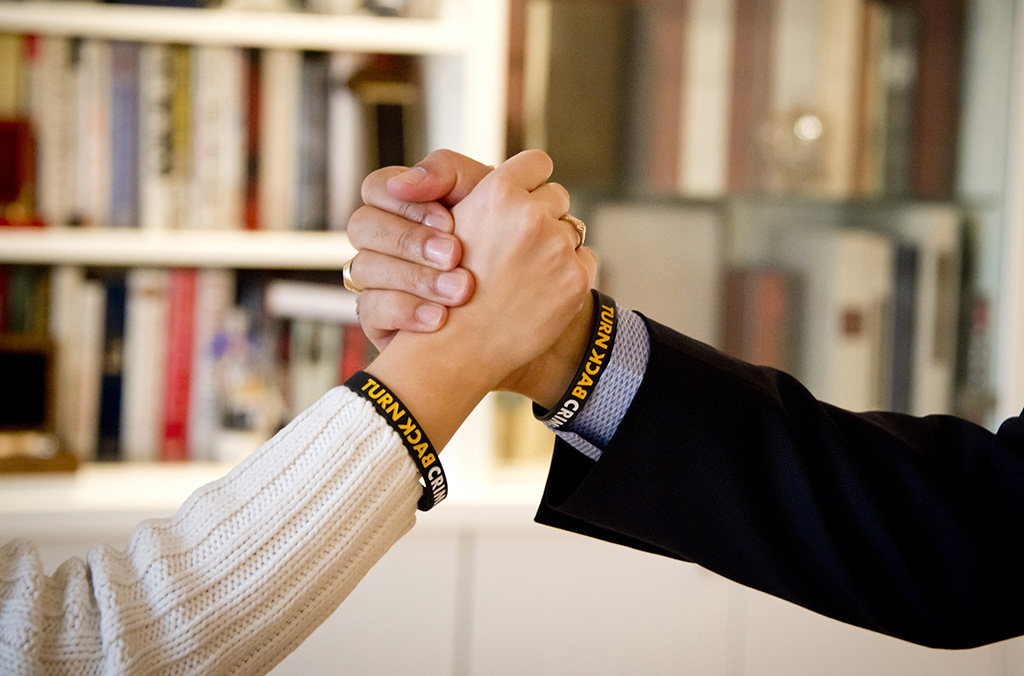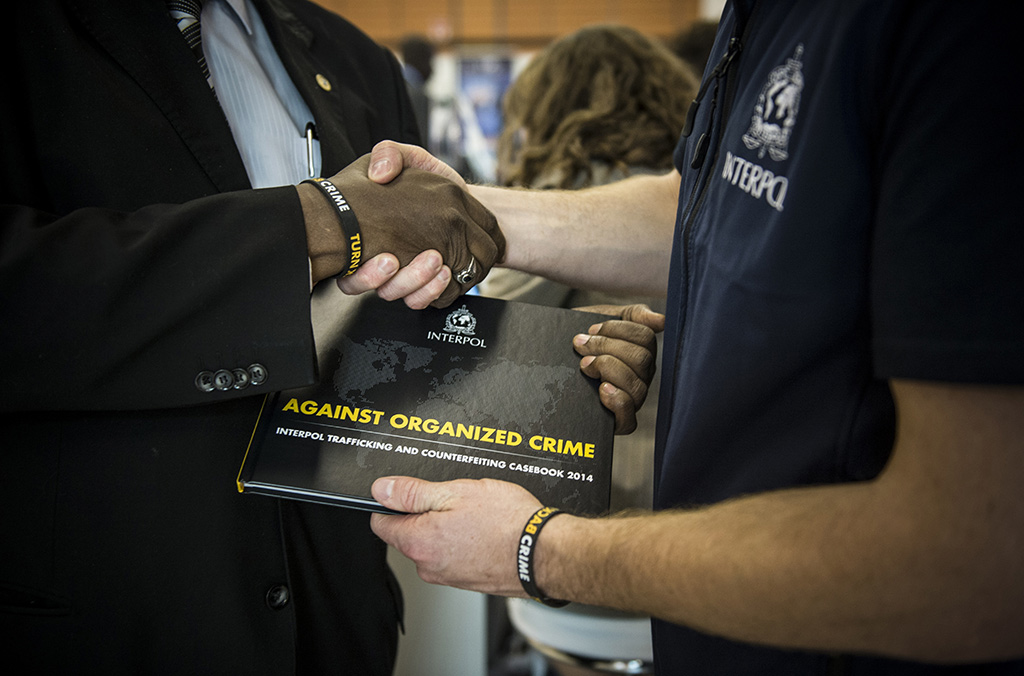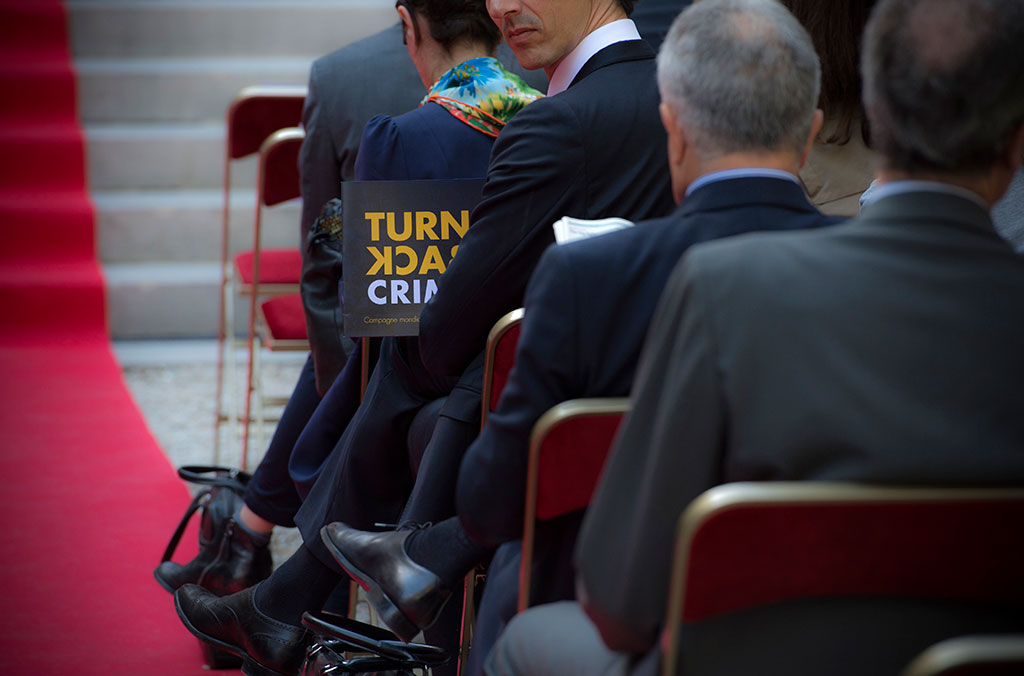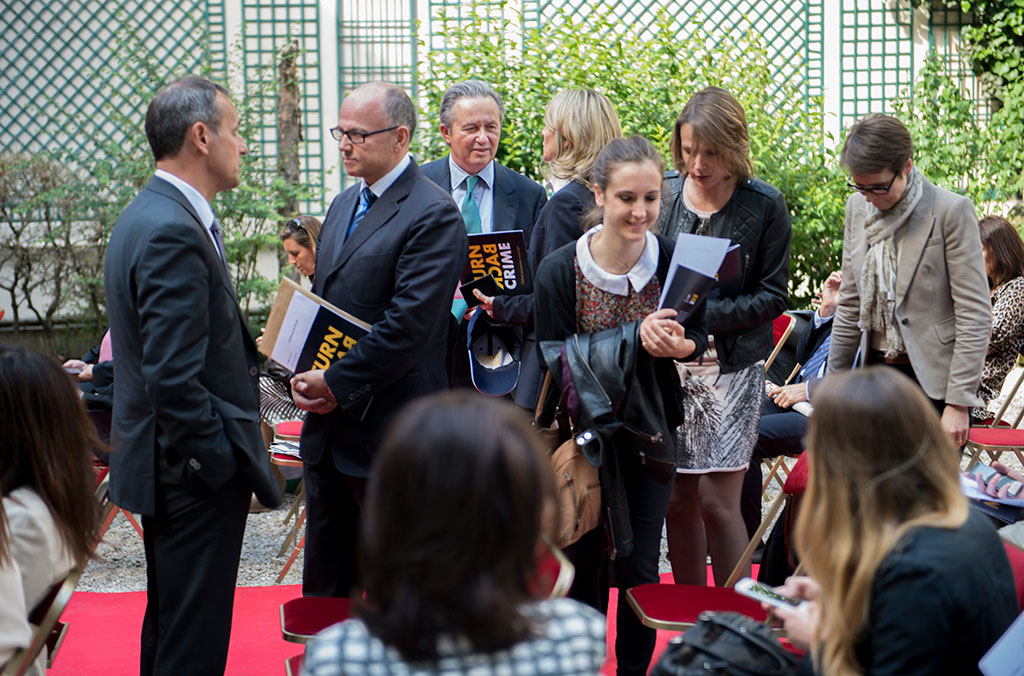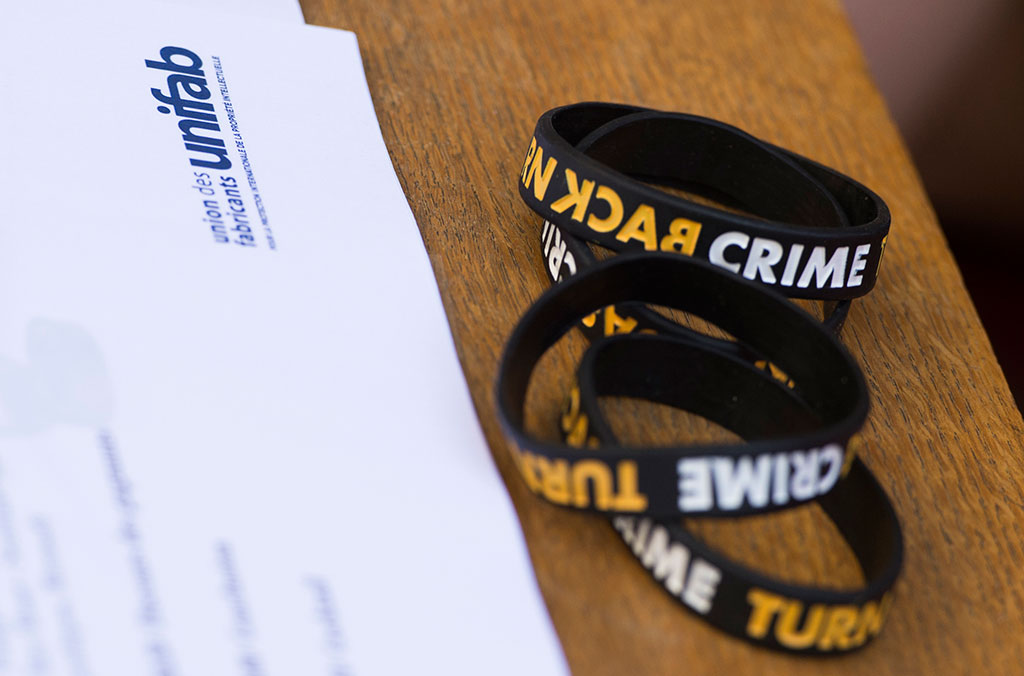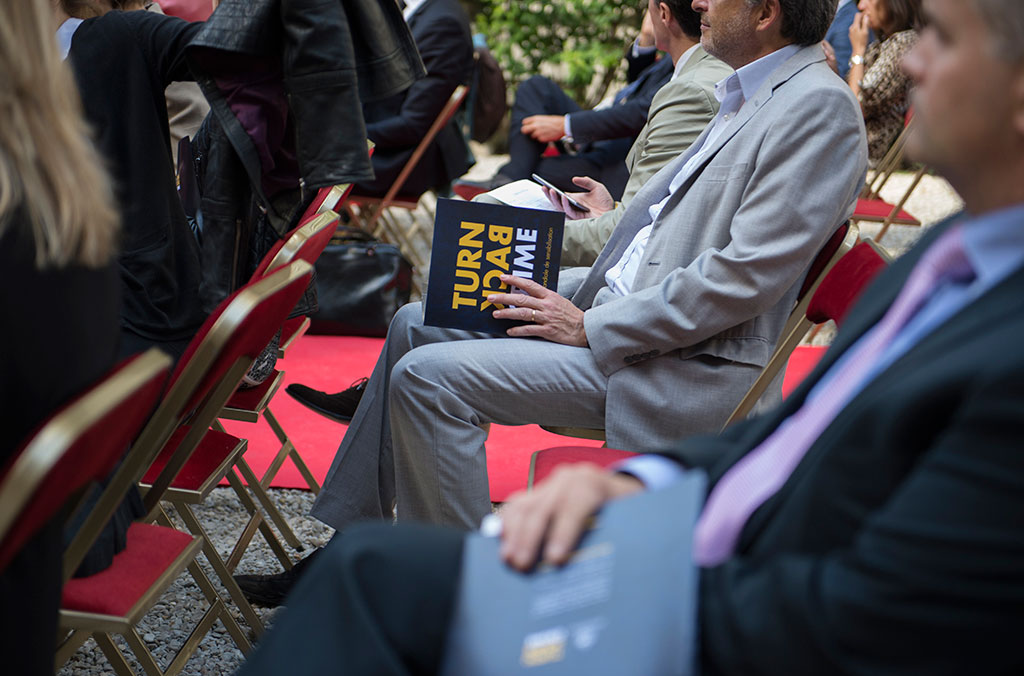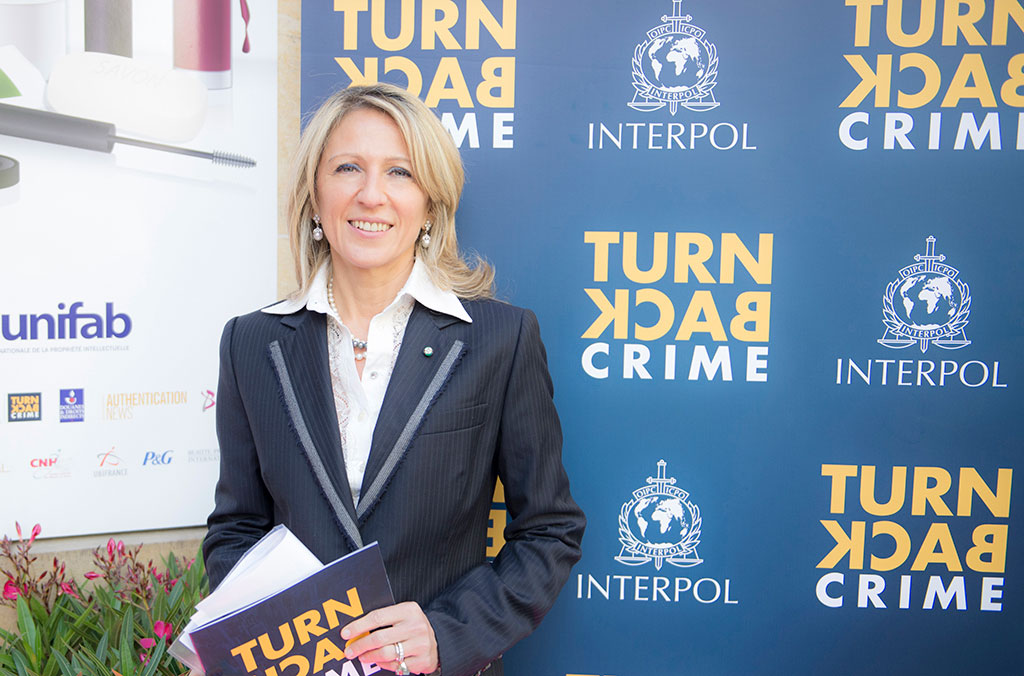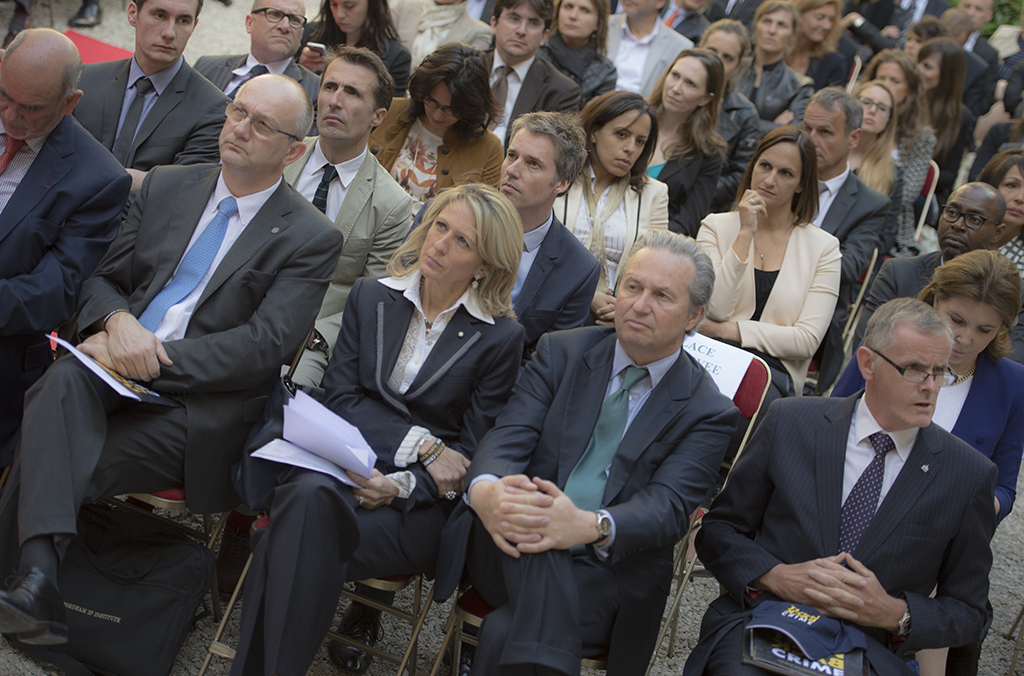#TurnBackCrime, INTERPOL’s campaign highlighting the dangers of organized and other forms of crime and their impact on everyday life is being rolled out around the world.
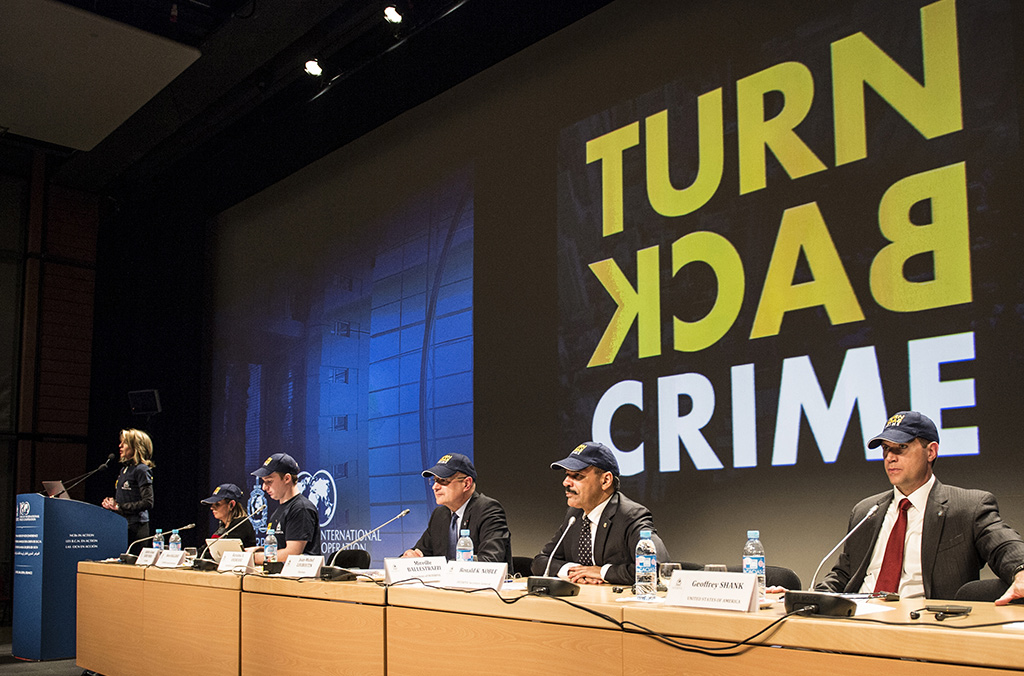
“Join the campaign. Together we can turn back crime,” urged INTERPOL’s Secretary General Noble.
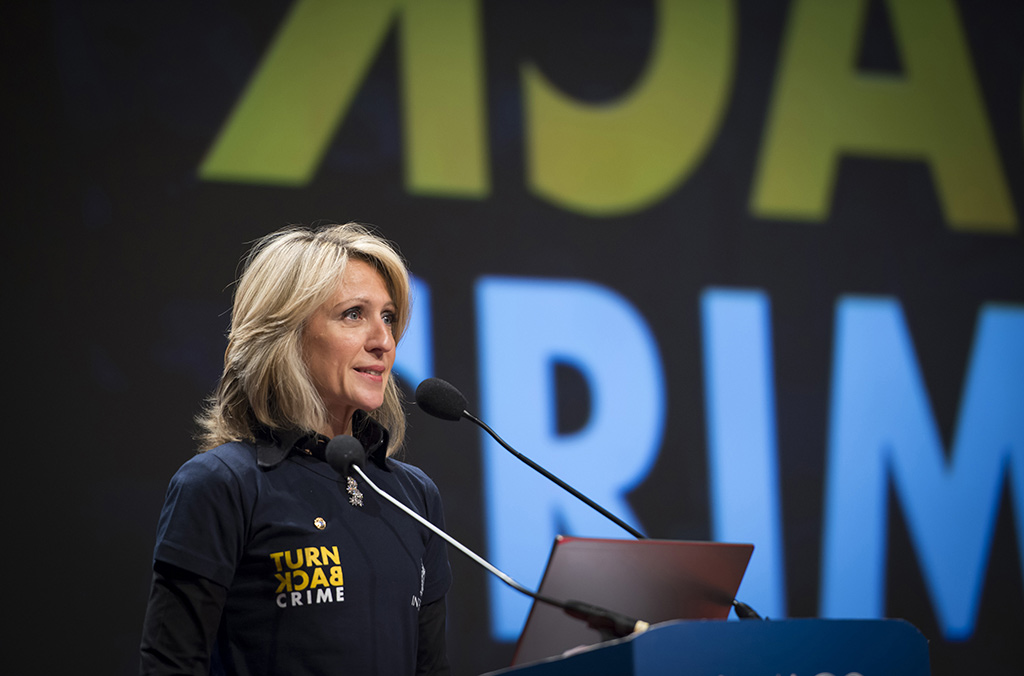
“Turn Back Crime is our shared opportunity to make the world a safer place,” said Roraima Andriani, INTERPOL’s Cabinet Director and Turn Back Crime campaign Executive Director.
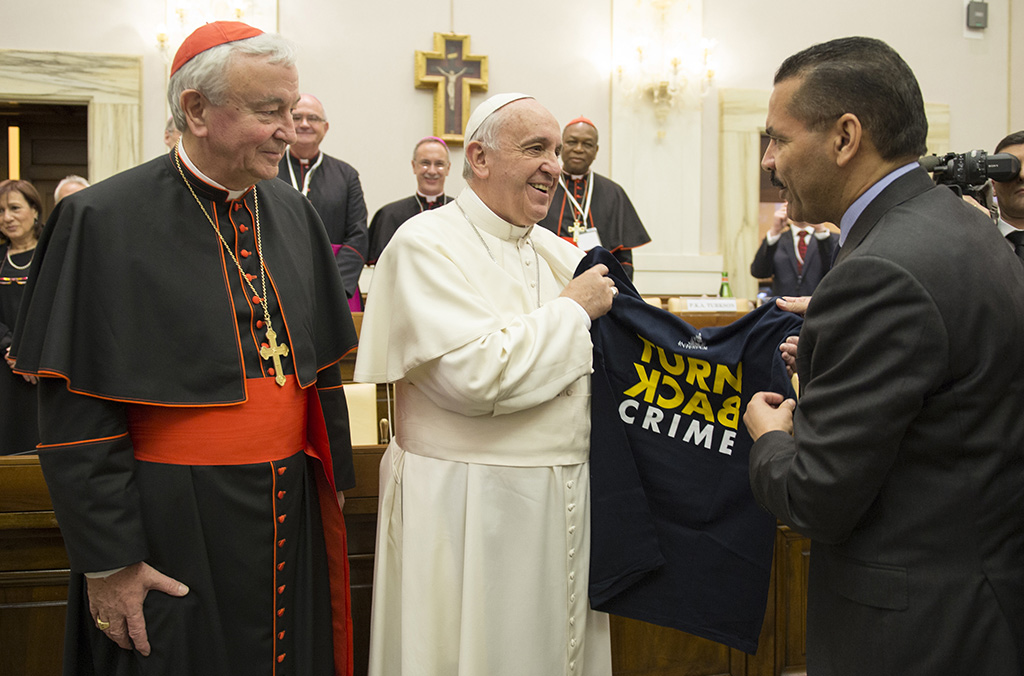
Secretary General Noble presents the campaign to Pope Francis during the Combating Human Trafficking conference at the Vatican City in April.
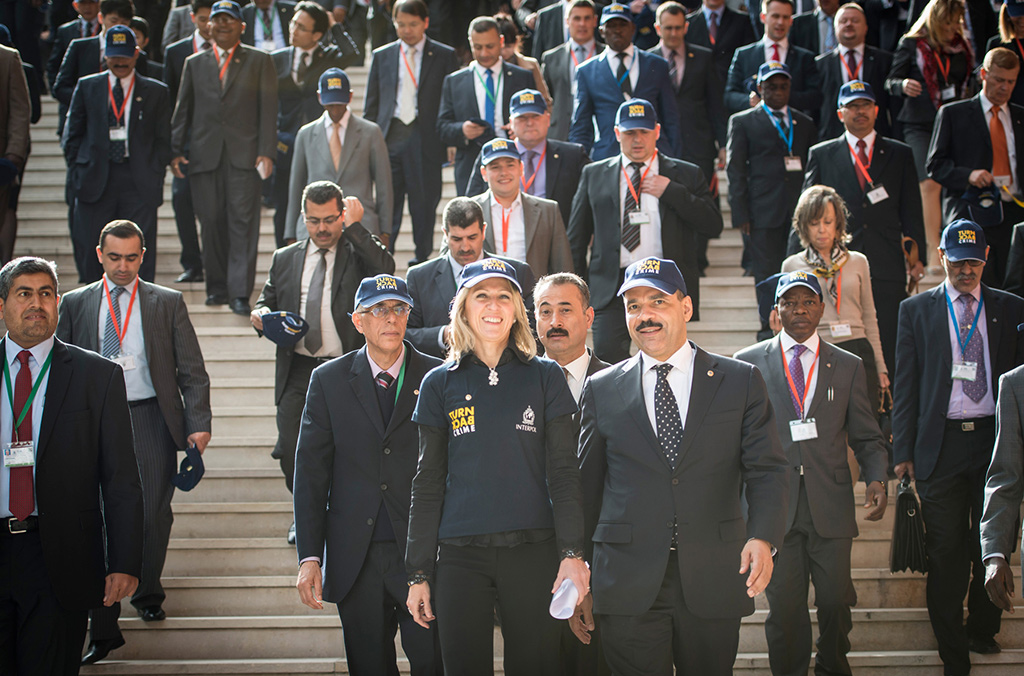
INTERPOL Secretary General Ronald K. Noble and Turn Back Crime campaign Executive Director Roraima A. Andriani.
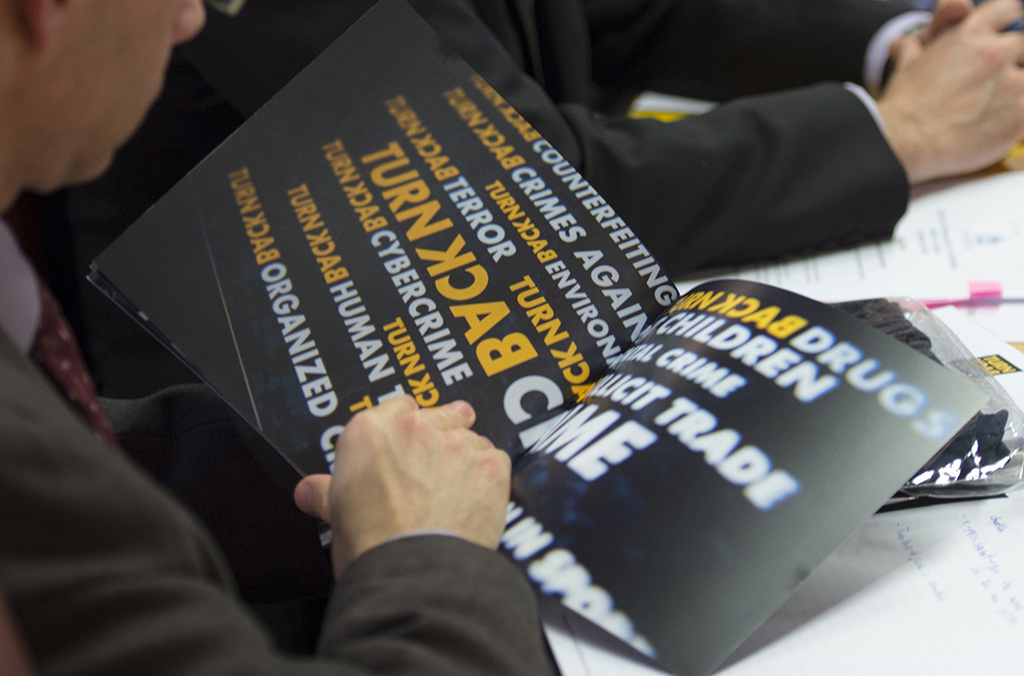
INTERPOL is launching the Turn Back Crime campaign to highlight the impact of crimes on everyday life.
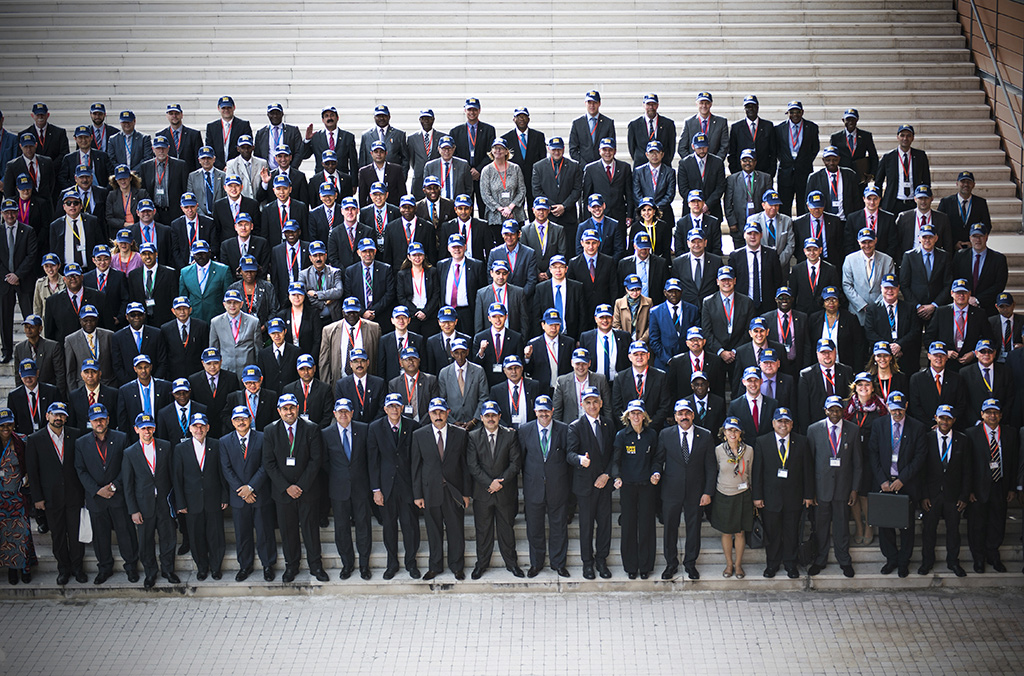
The campaign is presented to Heads of INTERPOL’s national central bureaus.
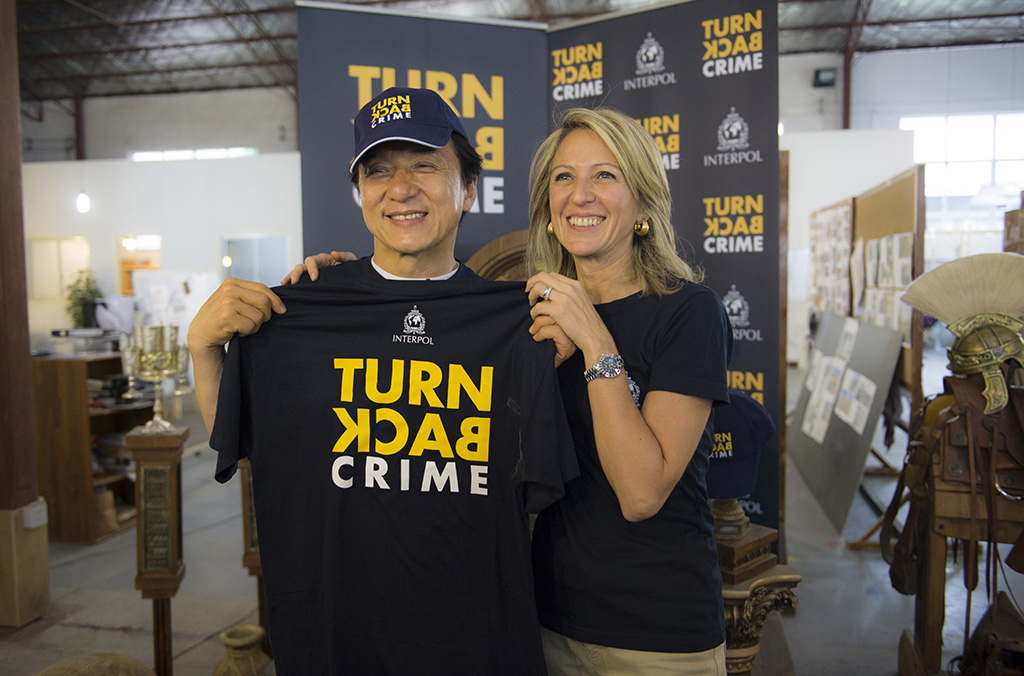
Campaign Executive Director Roraima Andriani with Jackie Chan.
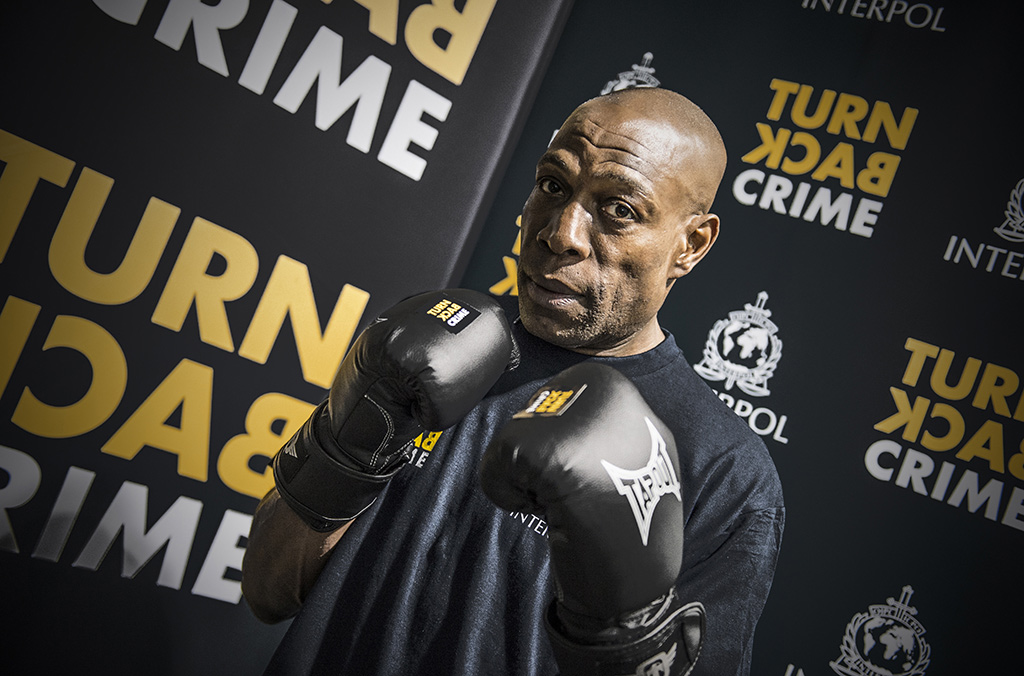
Former world boxing champion Frank Bruno is supporting the campaign, which aims to help the public understand crime issues and empower them to make informed choices about the products they buy or the way they use the Internet.
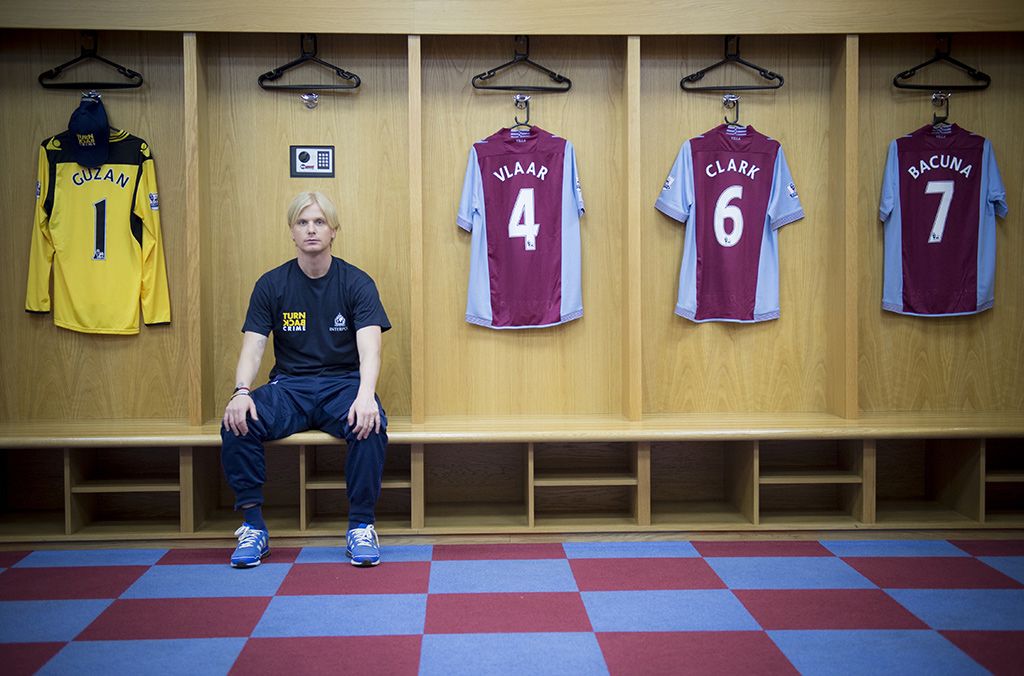
Footballer Simone Farina, who campaigns against corruption in sport, is joining the campaign.

INTERPOL encourages young people to find creative ways to express their views on how we can turn back crime.
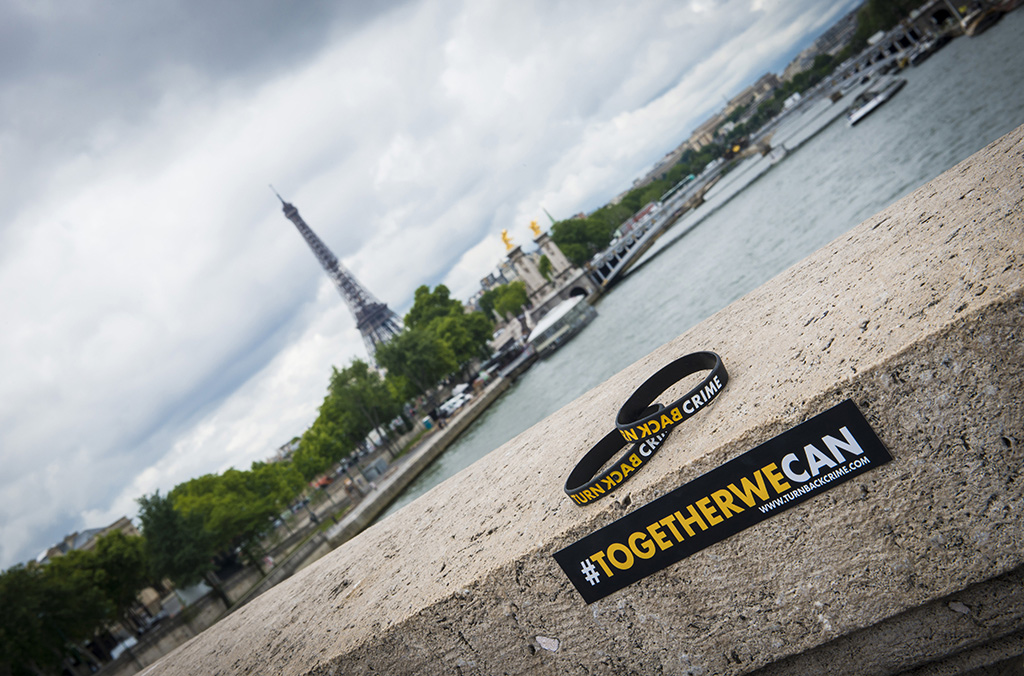
Campaign launch events were held around the world including Paris, Bogota, Dar-es-Salaam, Jakarta and Slovenia’s Port of Koper.
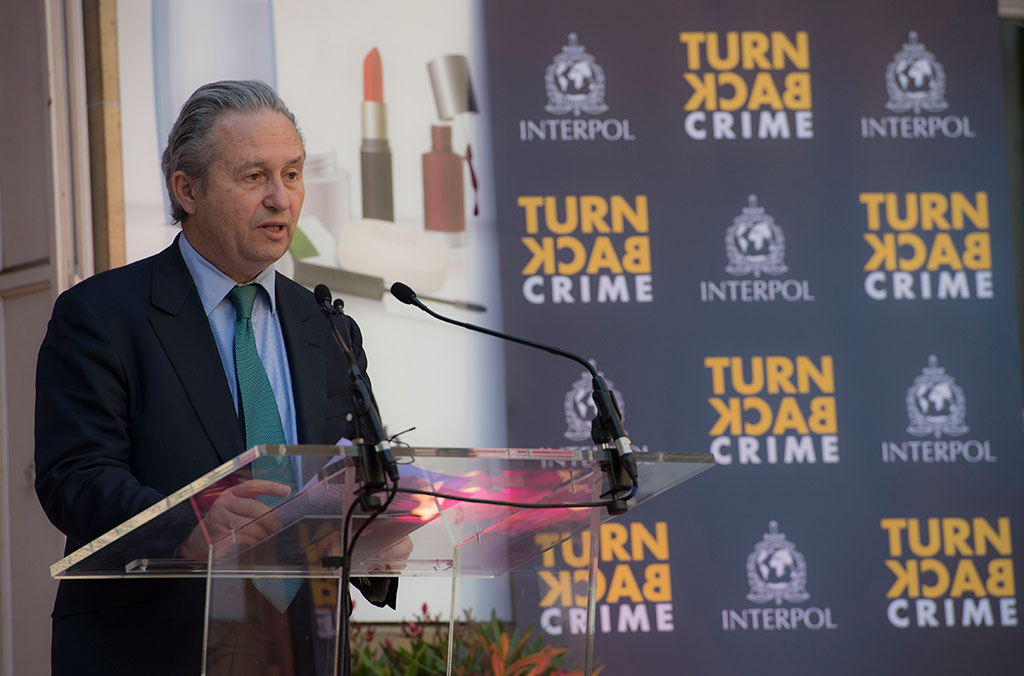
UNIFAB President Christian Peugeot said counterfeit goods also threatened the safety of consumers.
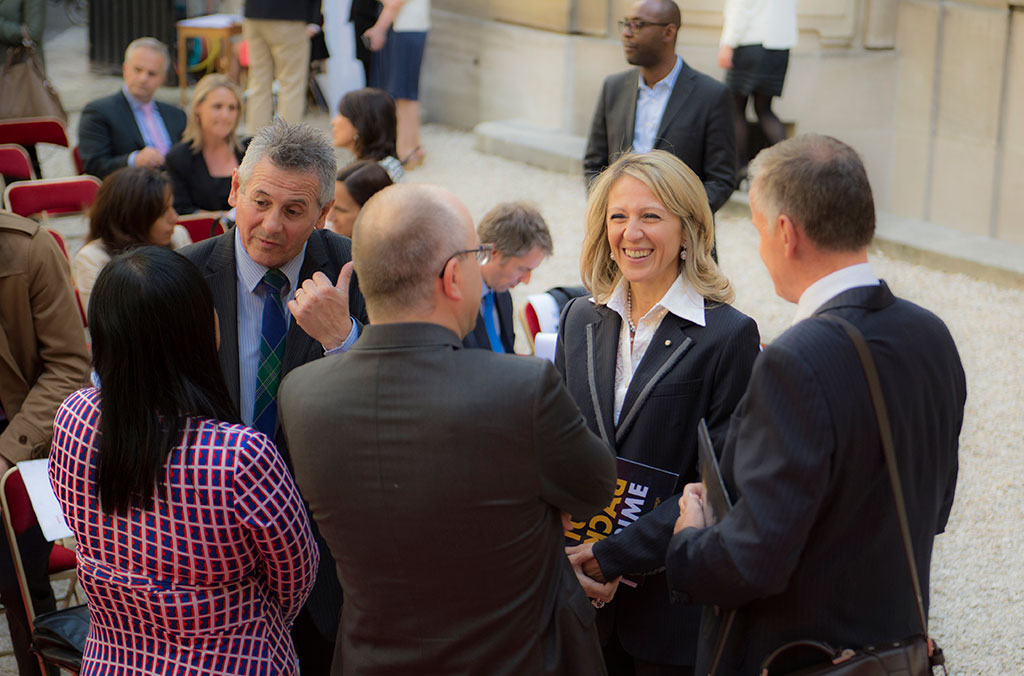
Turn Back Crime was rolled out on 5 June by the campaign's Executive Director, Roraima Andriani, at an event in Paris organized by the Union des Fabricants to mark World Anti Counterfeiting Day.
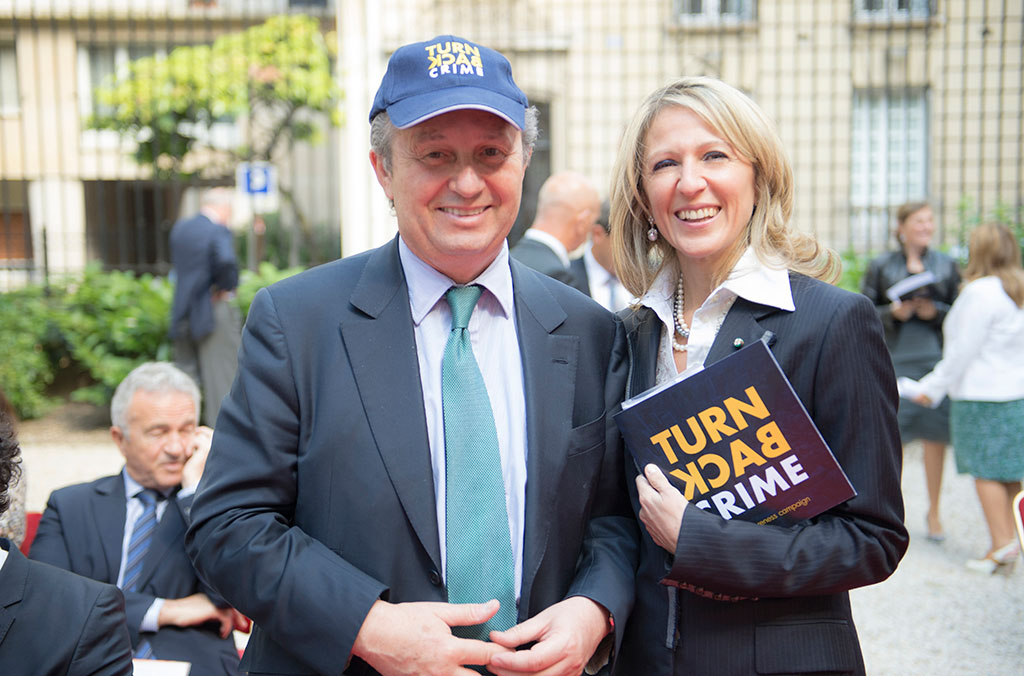
UNIFAB President Christian Peugeot (left) with Turn Back Crime campaign Executive Director Roraima A. Andriani.
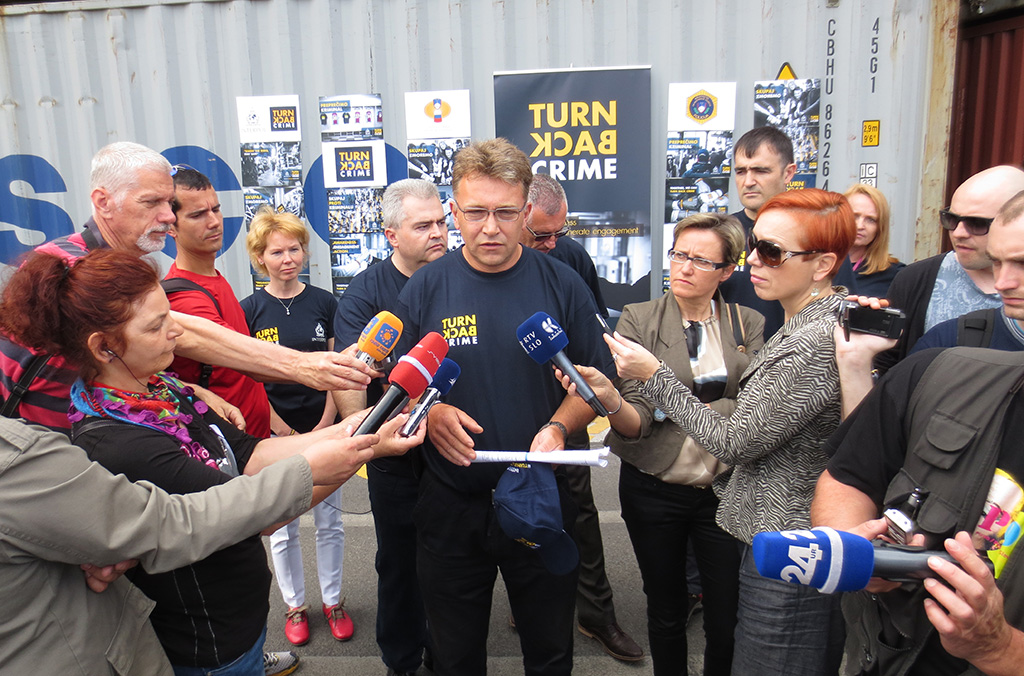
Slovenia marked the launch of the campaign at the Port of Koper, where customs and police officials demonstrated techniques for scanning and checking shipments to detect illicit goods.
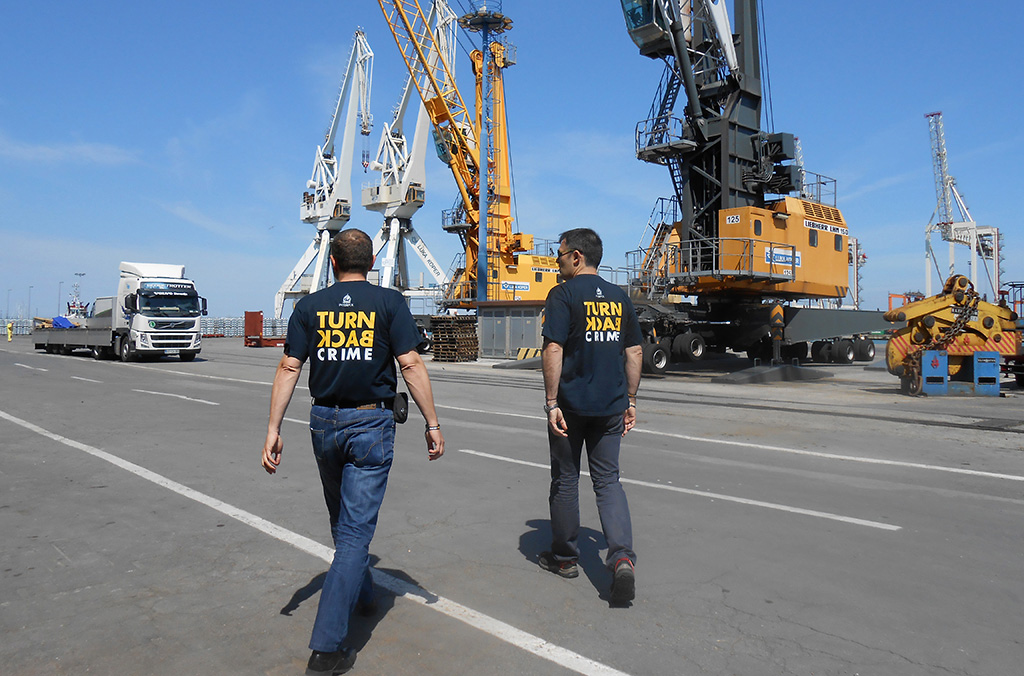
The port of Koper in Slovenia is an important economic and logistics channel for Central Europe, often used by criminal groups for illegal activities.
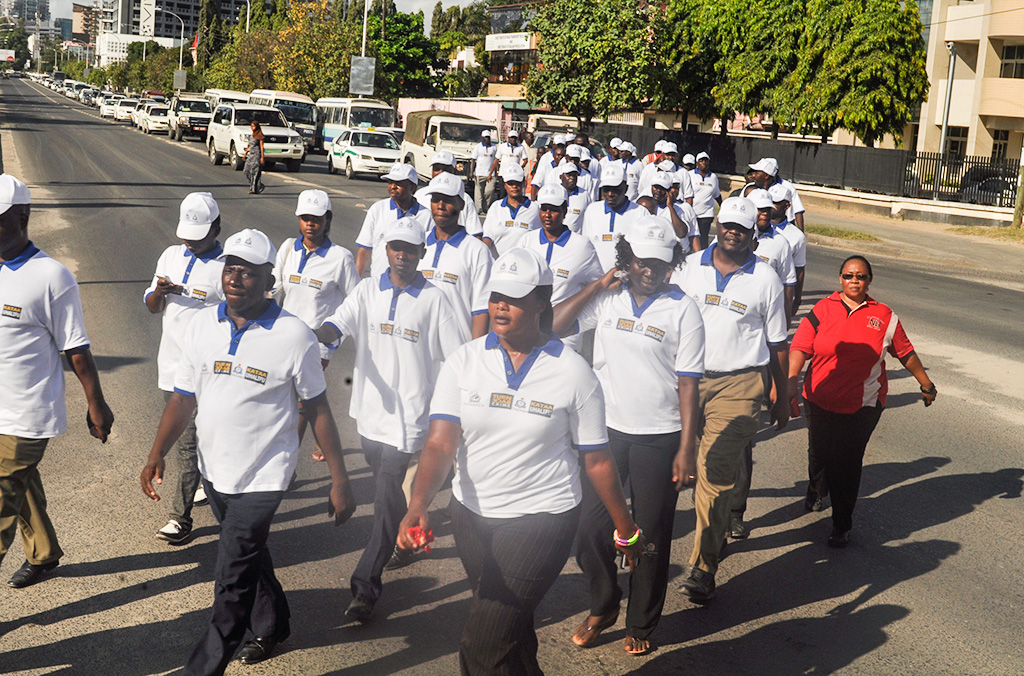
Tanzanian police officers march through Dar es Salaam to mark the launch of Turn Back Crime.
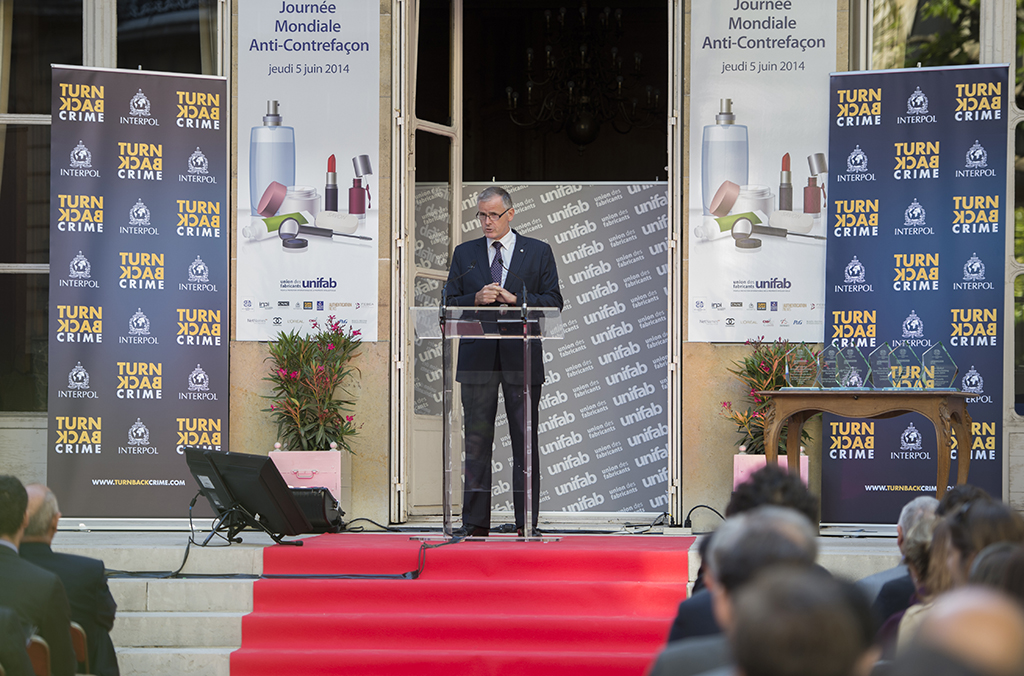
Michael Ellis, Head of the Trafficking in Illicit Goods and Counterfeiting unit at INTERPOL, addresses the UNIFAB gathering. He highlighted the role of the unit in fighting the production and trafficking in fake goods worldwide.
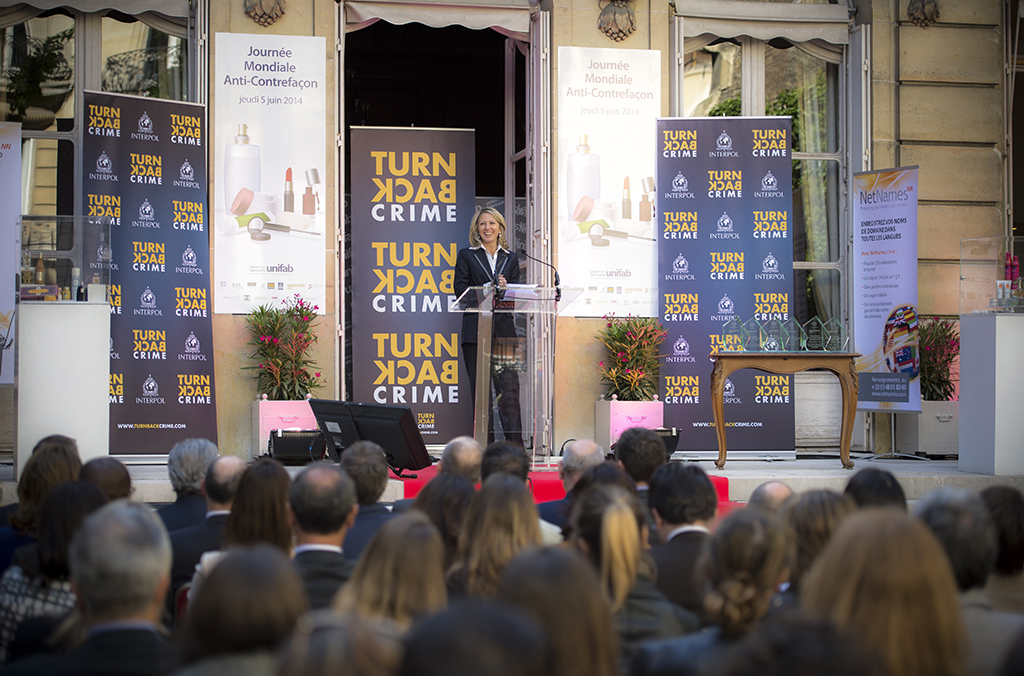
'#TogetherWecan #TurnBackCrime', campaign Executive Director Roraima Andriani told the audience as the campaign was rolled out at UNIFAB headquarters in Paris.
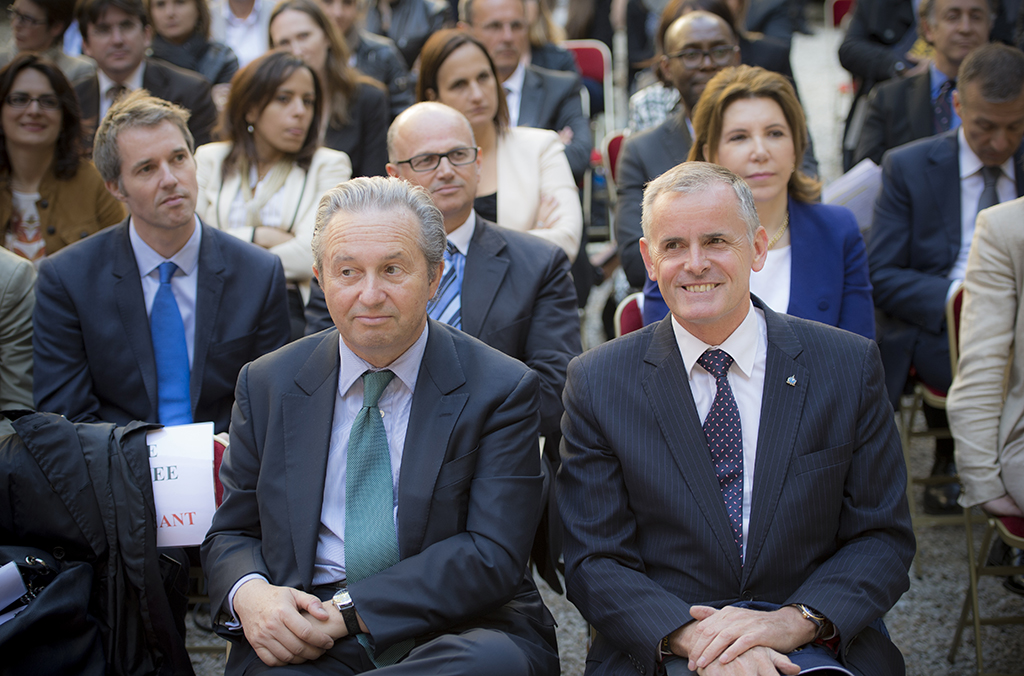
UNIFAB President Christian Peugeot (left) and Michael Ellis, head of INTERPOL´s Trafficking in Illicit Goods and Counterfeiting unit.
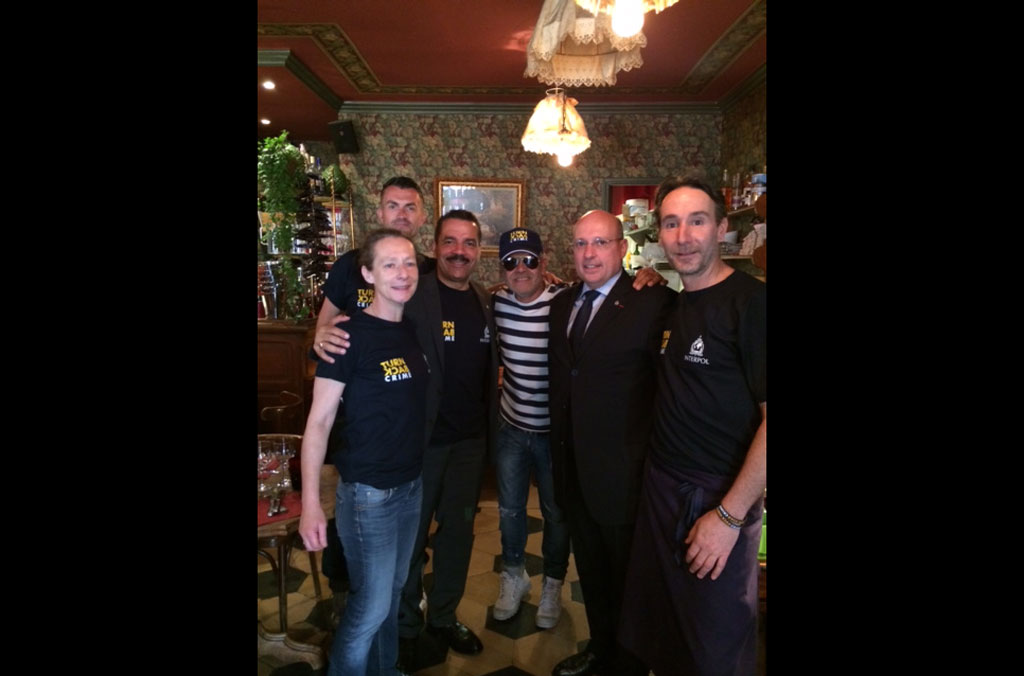
Staff at Lyon restaurantLaTable d’Hippolyte joined INTERPOL’s Secretary General Noble (third from left) and General Counsel Sollier (second from right) in celebrating the Turn Back Crime campaign.
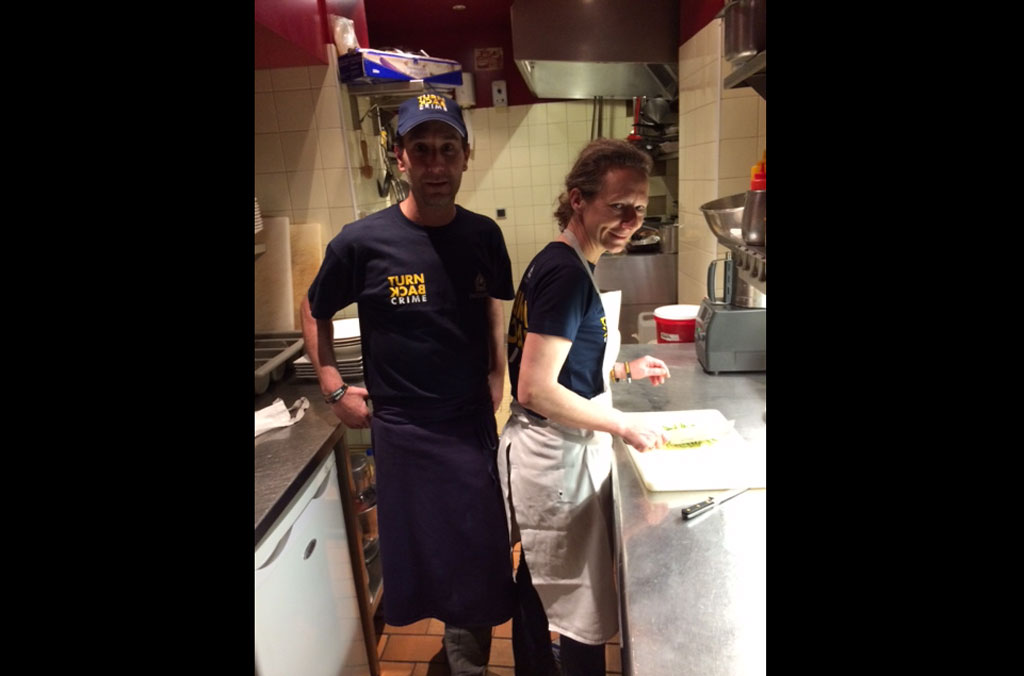
Staff at Lyon restaurant La Table d’Hippolyte wear the Turn Back Crime t-shirts.
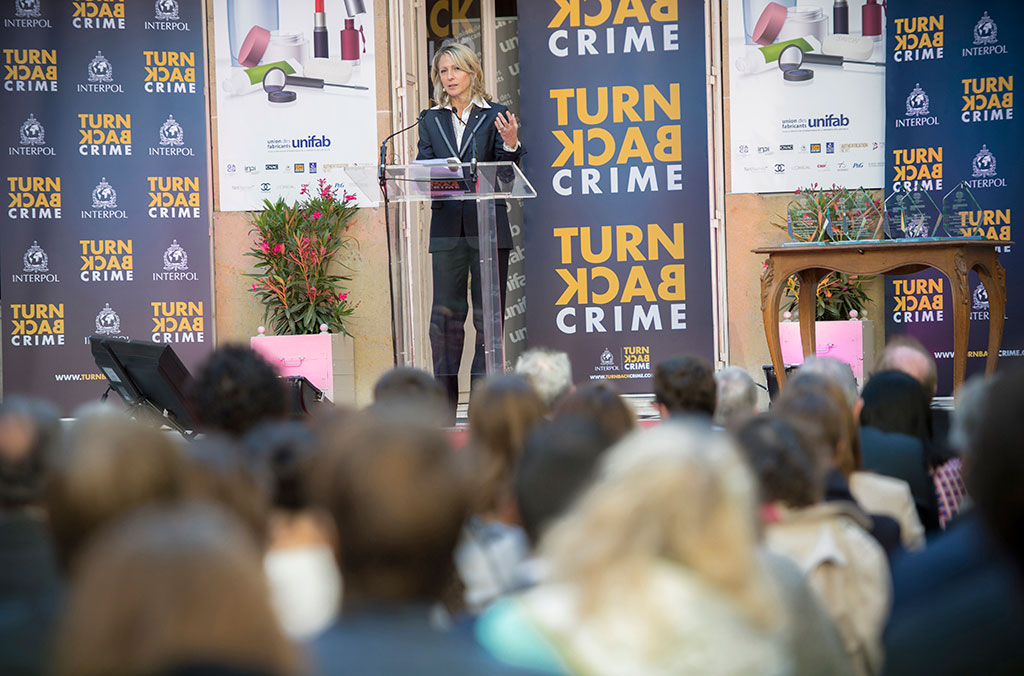
Campaign Executive Director Roraima A. Andriani addresses the UNIFAB meeting.
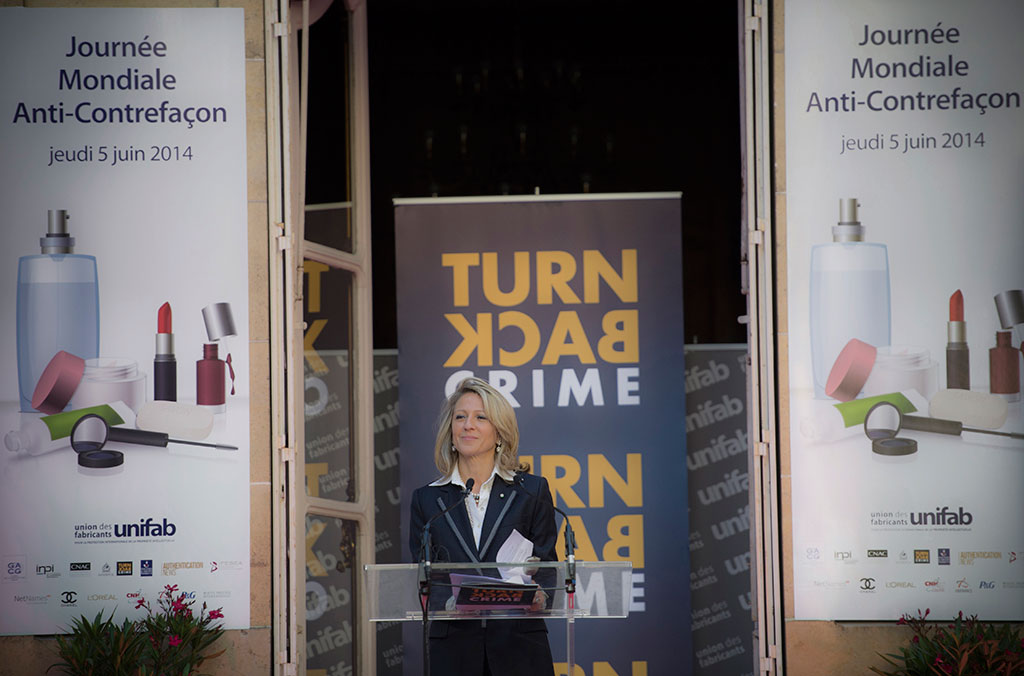
Campaign Executive Director Roraima A. Andriani addresses the UNIFAB meeting.
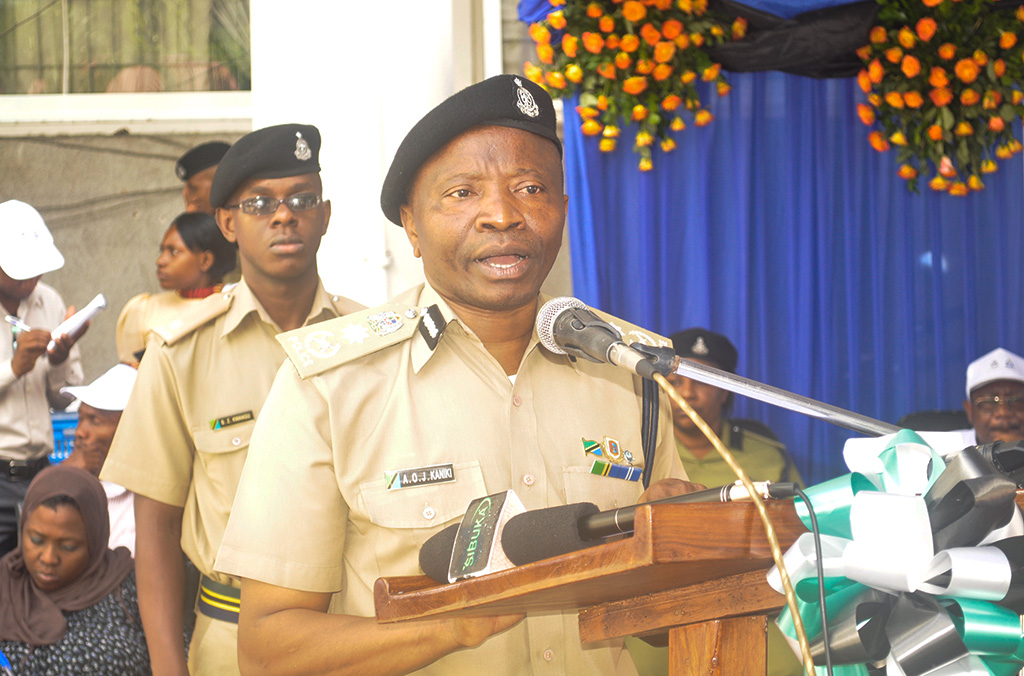
The campaign was officially launched in Tanzania by Deputy Inspector General of Police Abdulrahman Kaniki.
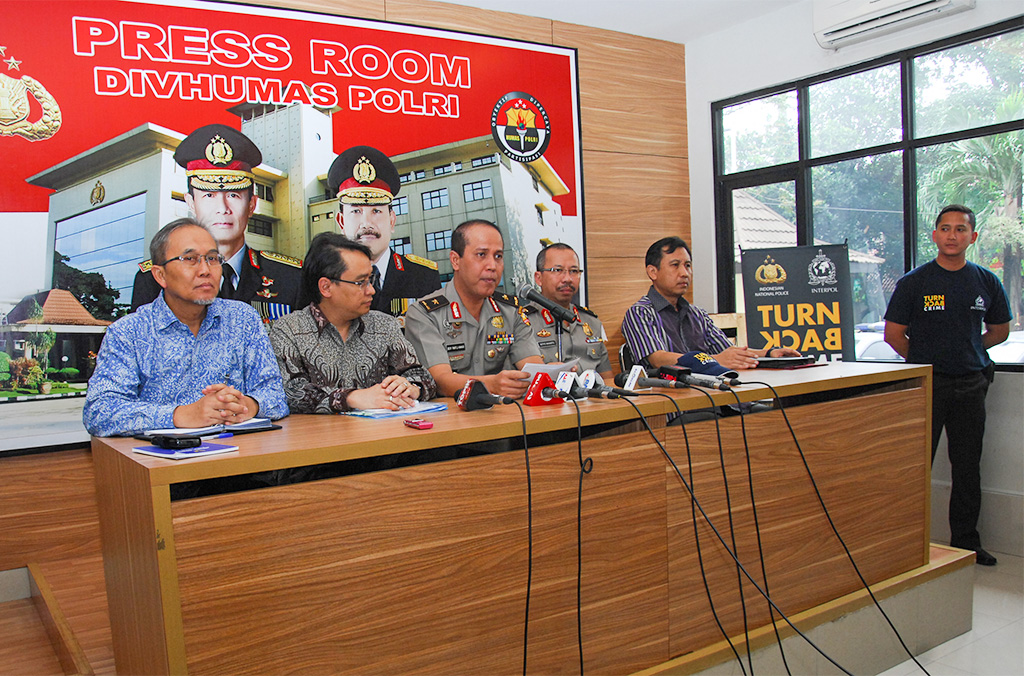
Launching Turn Back Crime in Indonesia, the Head of INTERPOL’s National Central Bureau Brig. Gen. Setyo Wasisto said that participation from the public was crucial to deter the growing circulation of counterfeit goods in the country.
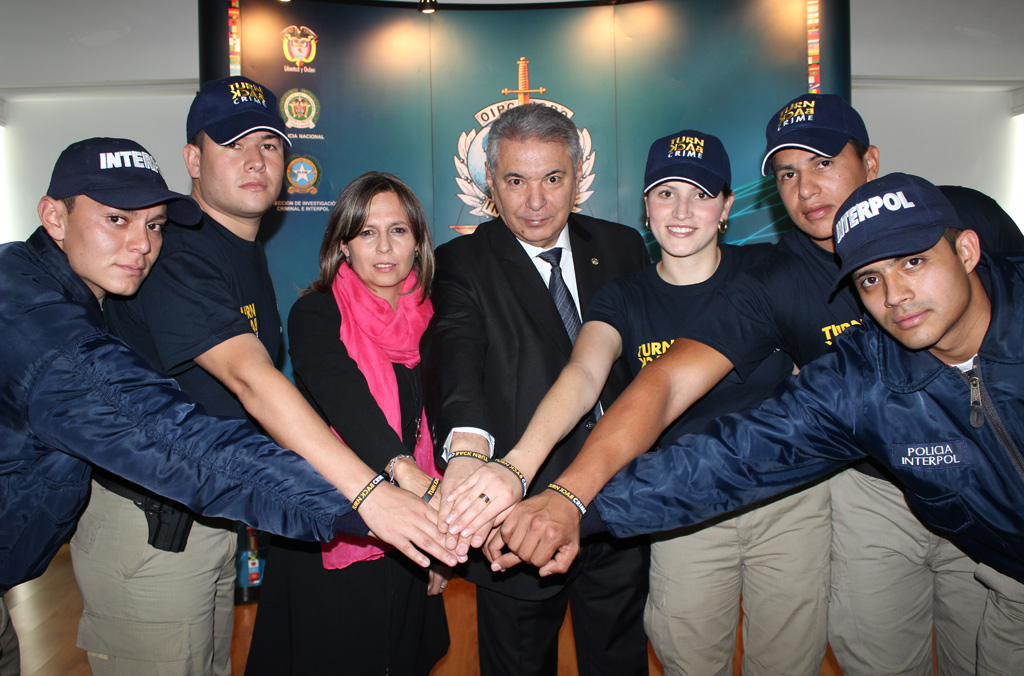
National police and INTERPOL staff at the launch of Turn Back Crime in Bogota, Colombia.
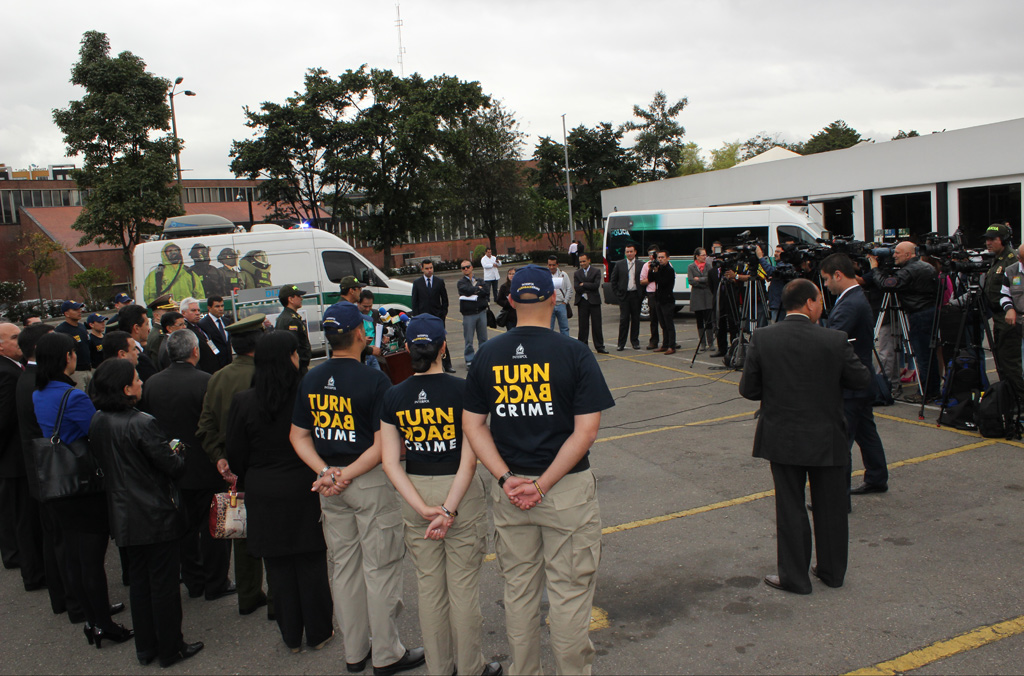
Colombian police promoted Turn Back Crime to the private sector and the Colombian public via a press and social media publicity campaign.
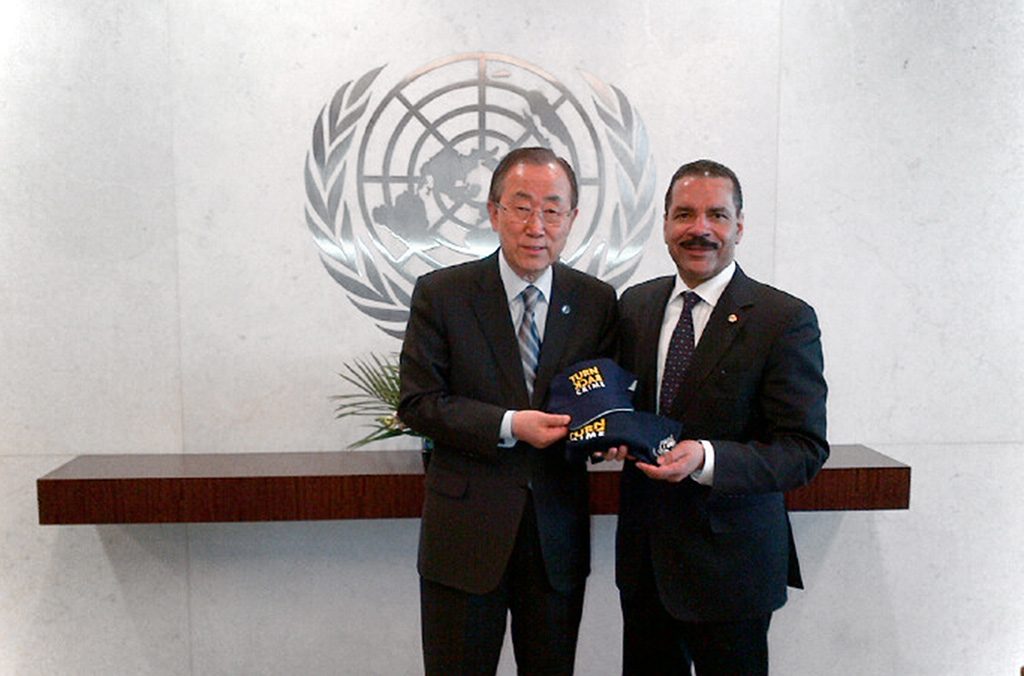
As part of a series of awareness generating initiatives ahead of the public roll out, the campaign is presented to United Nations Secretary General Ban Ki-moon in New York.
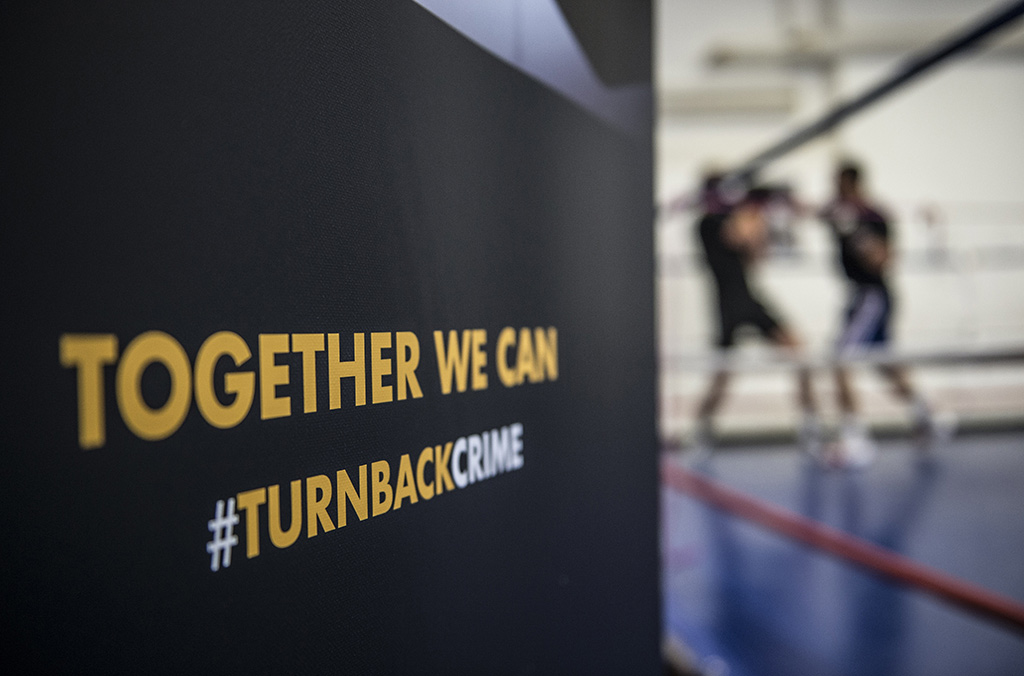
Crimes such as counterfeiting, cybercrime, kidnapping, fraud, crimes against children and corruption in sport are in fact often interconnected, with profits from one crime area used to fund another.
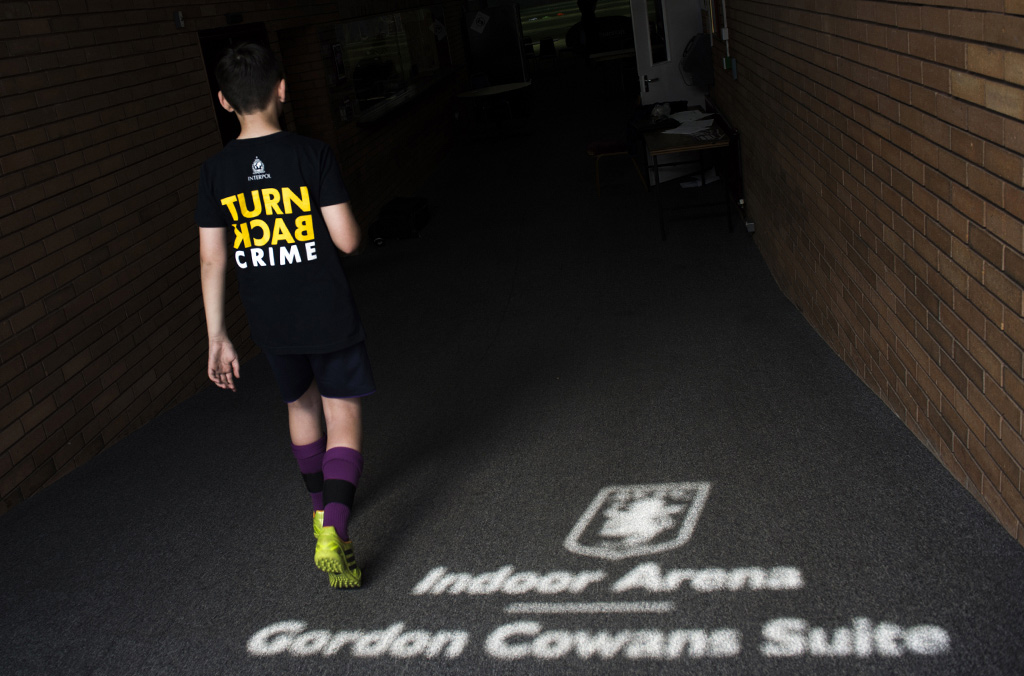
While many people know that transnational organized crime networks are behind various forms of trafficking such as illicit goods, fake medicines, drugs, arms and even people, they are often unaware of the links with other seemingly unrelated and varied crimes.
While many people know that transnational organized crime networks are behind various forms of trafficking such as illicit goods, fake medicines, drugs, arms and even people, they are often unaware of the links with other seemingly unrelated and varied crimes.
Crimes such as counterfeiting, cybercrime, kidnapping, fraud, crimes against children and corruption in sport are in fact often interconnected, with profits from one crime area used to fund another. This criminal activity puts individuals at risk and can also affect both the local and global economies.
Their health is endangered by poor quality and potentially life-threatening counterfeit products; their financial safety is compromised by attempts to steal their personal data; our environment and wildlife is threatened; and children face threats such as online grooming and sexual abuse.
INTERPOL’s Turn Back Crime campaign is aimed at helping the public better understand these issues and empower them to make informed choices, for example, about the products they buy or the way they use the Internet.
INTERPOL also wants to draw on the creativity and innovative spirit of the public, especially its youth, to express their views on how together we can Turn Back Crime.
Film star Jackie Chan has volunteered to be the first INTERPOL Turn Back Crime Ambassador and campaign events will today be held in cities around the world including Bogota, Dar-es-Salaam, Jakarta, Slovenia’s Port of Koper and Paris.
In addition to a dedicated Turn Back Crime website, INTERPOL is today releasing the first in a series of Public Service Announcements, ‘Organized crime starts with money, don’t let it be yours’.
“Police and citizens around the world face and deal with the reality and effects of crime every day,” said INTERPOL Secretary General Ronald K. Noble.
“Through the Turn Back Crime campaign, INTERPOL and law enforcement across the globe are looking to engage the private sector and the public, making them aware of the very real effects that crime has on individuals’ lives and to inspire them to come up with innovative ideas on how to prevent and fight crime.
“Join the campaign. Together, we can turn back crime,” added the INTERPOL Chief.
INTERPOL’s Cabinet Director and Turn Back Crime campaign Executive Director, Roraima Andriani, will be unveiling the initiative in Paris today at the headquarters of the Union des Fabricants to mark World Anti-Counterfeiting Day.
“Law enforcement, the public, governments and business, we each have our role to play to Turn Back Crime.
“Turn Back Crime is our shared opportunity to make the world a safer place,” said Mrs Andriani.
As part of a series of awareness generating initiatives ahead of the public roll out, the campaign was recently presented to United Nations Secretary General Ban Ki-moon in New York, and also during the Combating Human Trafficking conference at the Vatican City.
The Turn Back Crime campaign is also reaching out to companies and policy makers in a bid to form a united front against contemporary crime challenges, and to support the ongoing activities of the global law enforcement community.
Join the campaign:
Website: www.turnbackcrime.com
Facebook: www.facebook.com/turnback.crime
Twitter: https://twitter.com/TurnBackCrime
Instagram: http://instagram.com/turnbackcrime
#TogetherWeCan #TurnBackCrime











